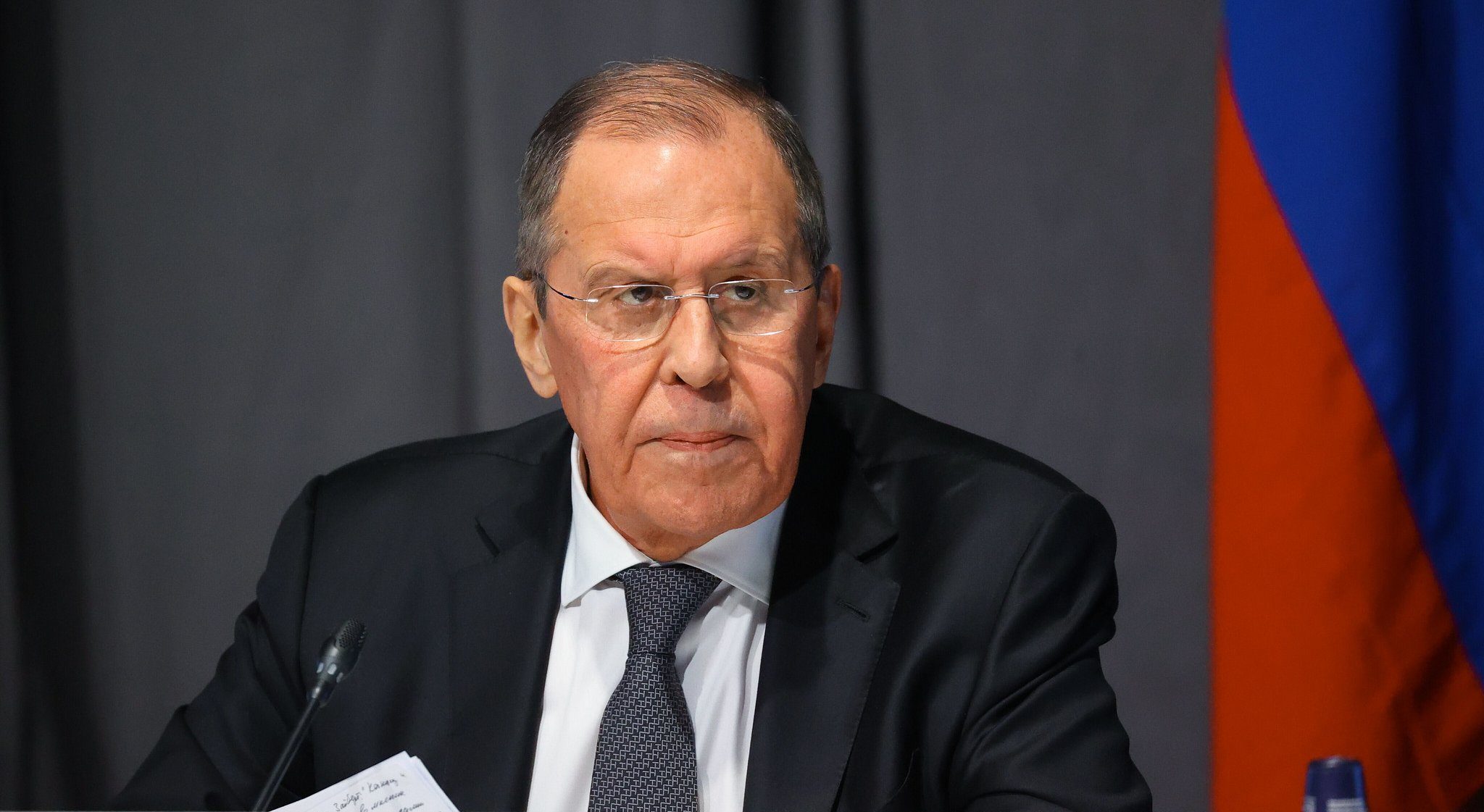OPEC was formed in 1960 as a cartel, with the mission of providing a solution to the worldwide supply of oil and its price levels.
Russian Foreign Minister Sergey Lavrov is scheduled to visit Saudi Arabia on Wednesday, where he will meet with the foreign ministers of the Gulf Cooperation Council countries.
Lavrov is expected to meet with top ministers of Qatar, Saudi Arabia, the United Arab Emirates, Kuwait, Oman, and Bahrain in the GCC headquarters in Riyadh, two Gulf officials familiar with the matter told Reuters on Tuesday.
The topics of discussion in the meeting are still unclear, however, the officials noted that the six Gulf ministers will also hold an online meeting with Ukraine’s Foreign Minister Dmytro Kuleba.
The Russian envoy’s visit will take place one day before the Organisation of the Petroleum Exporting Countries+’s (OPEC) meeting in Vienna, with the Gulf bloc set to retain the gas production deal agreed in 2021 and boost July output targets by 432,000 barrels per day.
Saudi Arabia and other current OPEC members, which have the OPEC+ alliance with Russia, have been placed under intense pressure from the West to surge gas production and simmer down the soaring oil prices amid the Russian invasion of Ukraine.
Riyadh has resisted those pressures so far, arguing that high oil prices were caused by “geopolitics, stretched refining capacities, and higher taxes in the Western world rather than supply concerns,” Reuters said.
However, the West will persist in its call to minimise global oil prices. The United States President Joe Biden and his team have been considering making a stop in Saudi Arabia as well as the Zionist regime after his trips to Germany and Spain to attend summits in late June, sources said earlier this month, according to Reuters.
Last week, two senior US officials, Brett McGurk, Biden’s top White House Adviser on the Middle East, and Amos Hochstein, the State Department’s Energy Envoy, visited Saudi Arabia. The two envoys mainly discussed Iran and global energy supplies with Saudi officials. In their meeting, the US officials did not ask for an increase in Saudi oil exports, the White House noted.
What is OPEC?
At the core of OPEC are 13 members. OPEC was founded in Iraq’s capital Baghdad, with the signing of an agreement in September 1960 by five countries namely Iran, Iraq, Kuwait, Saudi Arabia and Venezuela. They were to become the Founder Members of the Organisation.
These countries were later joined by Qatar in 1961, Indonesia in 1962, Libya in 1962, the United Arab Emirates in 1967, Algeria in 1969, Nigeria in 1971, Ecuador in 1973, Gabon in 1975, Angola in 2007, Equatorial Guinea in 2017, and Congo in 2018.
Qatar terminated its membership on 1 January 2019, bringing the total number of OPEC members to 13.
In the contemporary time, OPEC state members produce approximately 30% of the globe’s crude oil, which equates to about 28 million barrels a day. The biggest single oil producer within OPEC is Saudi Arabia, which produces more than 10 million barrels a day.
In 2016, when oil prices were distinctly low, OPEC joined forces with 10 non-OPEC oil producing countries to create OPEC+.
OPEC+ is a group of 23 oil-exporting countries that meet every month in Vienna, to decide the amount of crude oil that should be supplied in the world market. Among them is Russia, which also produces over 10 million barrels a day. Together, these nations produce about 40% of the world’s overall crude oil.
“OPEC+ tailors supply and demand to balance the market,” Kate Dourian of the Energy Institute said, according to the BBC. “They keep prices high by lowering supplies when the demand for oil slumps.”
The capacity to lower prices by putting more oil onto the market, which is what major importers like the US and UK want OPEC+ to do, is also within the group’s power bounds.
Energy market concerns and OPEC+
The US President has repeatedly asked Riyadh to boost its oil output, but it has been ineffective.
UK Prime Minister Boris Johnson, has also appealed to Saudi Arabia and the United Arab Emirates to increase production, however his persuasion was not met with success, the BBC reported.
“Saudi and the UAE have spare capacity, but they are refusing to increase output on their own,” Dourian argued. “They don’t want to be dictated to by the West.”
OPEC+ has to meet Moscow’s concerns and wishes, as it is one of the two biggest partners in this alliance.
“The Russians are happy with prices at this level,” Carole Nakhle, CEO of Crystol Energy noted. “They have nothing to gain in seeing them go lower.”
“OPEC wants to keep good relations with Russia, so they are most likely to continue with the agreement they all made last year. That means increasing crude supplies very gradually from now until September.”







